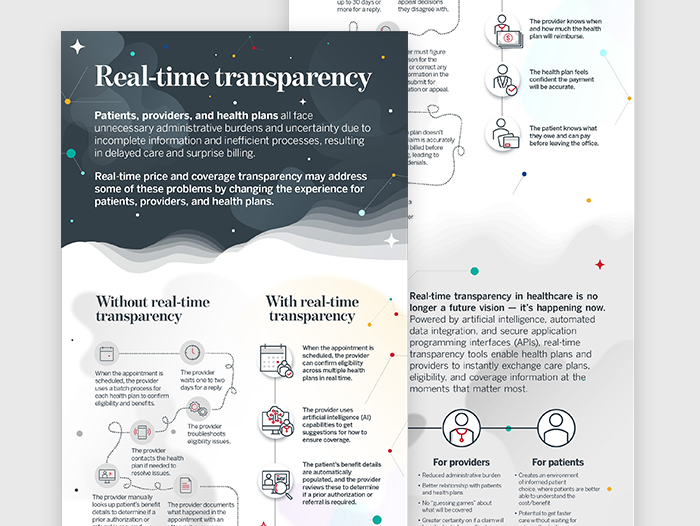Auto logout in seconds.
Continue LogoutAs violence against healthcare workers continues to rise, health systems are looking for new ways to combat these incidents. Writing for Modern Healthcare, Gabriel Perna explains how one hospital developed an artificial intelligence (AI) tool to predict violent encounters before they happen and better protect their workers.
Violence against healthcare workers is rising
According to a recent survey from National Nurses United, over 80% of nurses reported experiencing some form of workplace violence in 2022 and 2023.
Of the respondents, 67.8% said they had been verbally threatened and 38.7% said they had been physically threatened. Over 30% of nurses also reported being physically harmed at work, including being pinched or scratched, slapped or punched, and having objects thrown at them.
Compared to the year before, 45.5% of nurses said there was an increase in workplace violence in 2023. Only 3.8% of nurses said that workplace violence had decreased in their units compared to the previous year.
Workplace violence has taken a physical and mental toll on nurses. Over 60% of nurses reported feeling anxiety, fear, or increased vigilance due to workplace violence, and 33.4% said they experienced physical injuries or other physical symptoms, such as headaches or stomachaches.
"We feel that workplace violence, particularly in healthcare, was an epidemic before the pandemic. But then with the pandemic, it just got even more pronounced," said Steve Miff, CEO of the Parkland Center for Clinical Innovation, Parkland Memorial Hospital's research institute. "When you're at the hospital, it's one of most vulnerable times in your life. So, you can understand why it's a setting that's probably more primed for irrational behavior."
How Parkland Memorial Hospital is using AI to combat workplace violence
According to Miff, Parkland Memorial has around 400 violent incidents against clinicians every year, which can include verbal threats, hair pulling, biting, or hitting. However, these incidents are often underreported by clinicians.
"Just hearing the frontline staff stories is just heartbreaking because they're passionate about helping people and then they themselves become a victim," Miff said.
To combat workplace violence, a team from the hospital's research institute developed a predictive AI tool inside the hospital's EHR. This tool generates a risk assessment score based on the likelihood of a patient becoming violent.
The developers trained the AI model with five years of data on violent incidents from the hospital's EHR, human resources systems, and the Occupational Safety and Health Administration. The tool also considers a patient's social drivers of health, such as geographic information and other potential contributing factors.
For example, a patient who smokes having to spend a few hours in the hospital where smoking is not allowed may have an increased likelihood of violence. "That was one of the top 10 predictive factors," Miff said.
According to Alex Treacher, senior data and applied scientist at the Parkland Center for Clinical Innovation, physicians were integral to helping the research team develop the AI model. If clinicians receive an alert about a potentially violent patient, they use the Brøset violence checklist to assess a patient's mood and language. From there, they can take steps to minimize harm and de-escalate a potentially violent situation.
Parkland Memorial tested the AI tool from October 2022 to August 2023. For every 1,000 patient-clinician interactions, the tool correctly predicted 7.1 violent events and missed 2.3 violent events. Overall, the tool generated 823 correct predictions and 167 false alerts about nonviolent patients.
According to Miff, the tool has led to a higher comfort level among clinicians at the hospital. "We constantly hear how it feels like they have somebody watching their backs," he said. "They tell us, 'There's an algorithm that we don't know [about] but it's running in the background and is watching our back.'"
Going forward, the AI tool will continue to undergo adjustments as it's adopted across the broader Parkland Health system, Miff said.
Advisory Board AI resources
For more insights on AI in healthcare, check out these Advisory Board resources:
This field guide explains how to take a problem-first approach to AI. Although health systems may be tempted to jump to the latest AI solution, it's better to evaluate whether it will actually address an organization's challenges first.
This infographic explains how healthcare organizations can overcome challenges with AI to unlock the technology's potential. Similarly, this research provides healthcare leaders with a baseline understanding of major AI risks, as well as tips on how to ethically deploy AI models.
This conversation guide outlines the top three concerns staff have about AI and how leaders can address them. This expert insight can also help you develop appropriate AI governance at your organization.
We also have a featured page with resources that can help you with AI governance, investment, stakeholder communication, and more. (Perna, Modern Healthcare, 5/7)
Don't miss out on the latest Advisory Board insights
Create your free account to access 1 resource, including the latest research and webinars.
Want access without creating an account?
You have 1 free members-only resource remaining this month.
1 free members-only resources remaining
1 free members-only resources remaining
You've reached your limit of free insights
Become a member to access all of Advisory Board's resources, events, and experts
Never miss out on the latest innovative health care content tailored to you.
Benefits include:
You've reached your limit of free insights
Become a member to access all of Advisory Board's resources, events, and experts
Never miss out on the latest innovative health care content tailored to you.
Benefits include:
This content is available through your Curated Research partnership with Advisory Board. Click on ‘view this resource’ to read the full piece
Email ask@advisory.com to learn more
Click on ‘Become a Member’ to learn about the benefits of a Full-Access partnership with Advisory Board
Never miss out on the latest innovative health care content tailored to you.
Benefits Include:
This is for members only. Learn more.
Click on ‘Become a Member’ to learn about the benefits of a Full-Access partnership with Advisory Board
Never miss out on the latest innovative health care content tailored to you.


